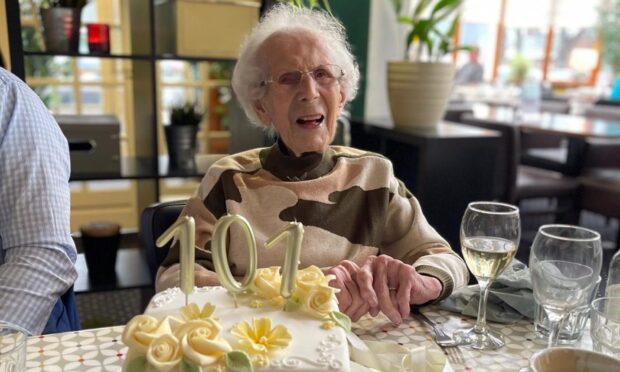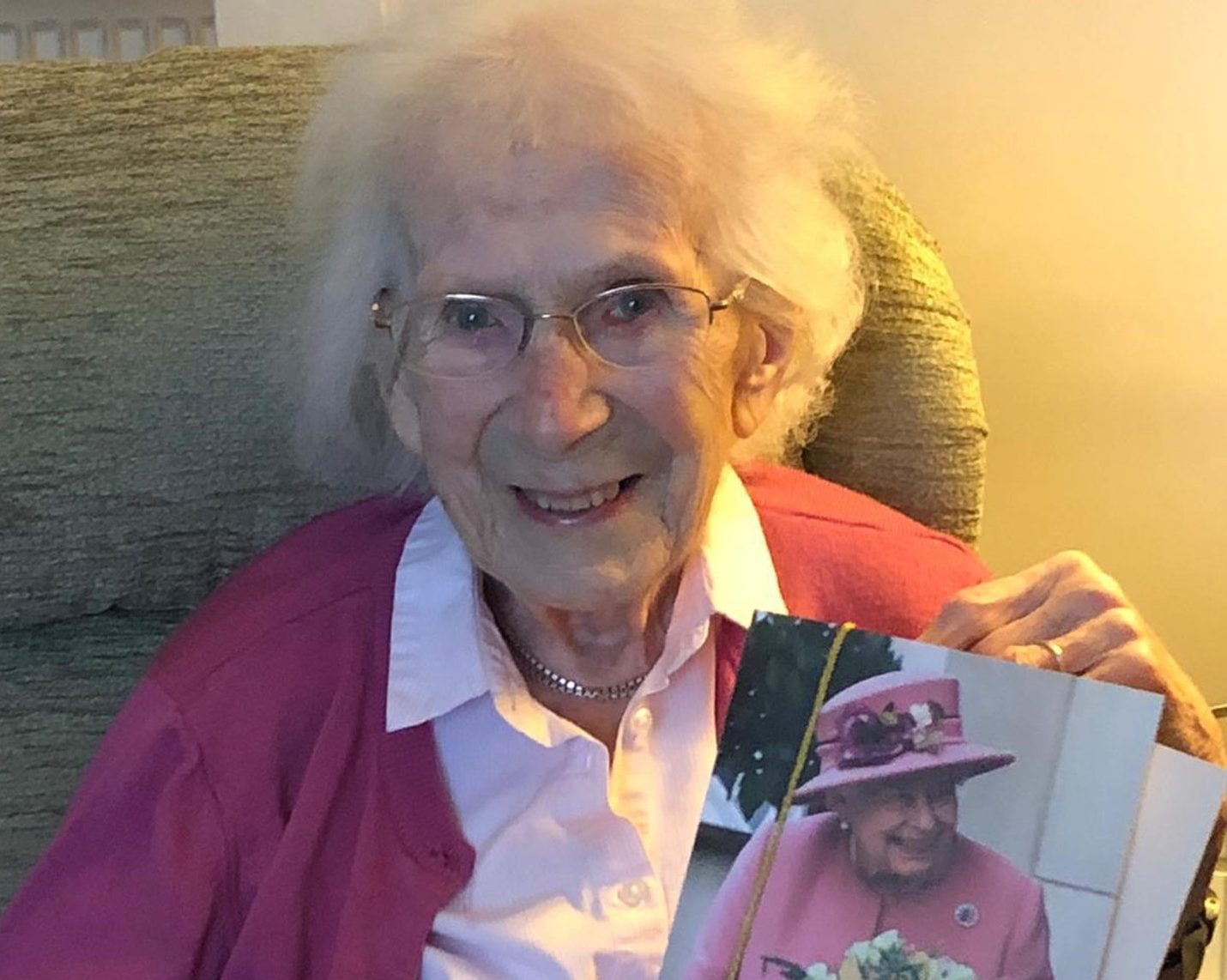Robina Noble, one of the longest surviving Dundonians to have lived in India during the jute period, has died aged 102.
Together with her husband John, she sailed to India by steamship, arriving in Mumbai in January 1948, on the same day Mahatma Gandhi was assassinated.
They spent two decades as part of the expat community as John’s business career flourished and he became superintendent of a group of jute mills.
During their spell in India, sons Ian and Douglas were born in 1948 and 1953 respectively. They were sent to board at Robert Gordon’s College in Aberdeen but made trips to India and were reunited with their parents on their leave periods to the UK.
Mofussil Society
While in India, Robina volunteered at a shop selling traditional local crafts. She maintained contact with fellow expats on her return to Scotland through involvement in the Calcutta Mofussil Society which once thrived in Dundee, holding annual events at the Taypark and Invercarse hotels.
Robina, known as Ruby, was born in Lochee in February 1921 to plumber and gas fitter Robert Moyes and his wife, Isabella, nee Jarvis.
She had an elder sibling, Helen, known as Ella, who married Dundee accountant Marshall Campbell.
Robina left school and began work in a shop and when war broke out she was called up to work in a ball-bearing factory in Dundee and rose to a senior quality control position.
War years
John had been in India since 1935 where he learned Hindi, Urdu and spoke a bit of Bengali. During the war he was commissioned in the British Army and had a period seconded to the Indian Army.
It was during a spell of 90 days’ leave in the UK that John met Robina. They married in December that year after a whirlwind romance and headed out to India.
Ruby very quickly embraced her new life, also learning Hindi and Urdu. She would often be seen bartering with Indian shopkeepers much to the locals’ surprise and she quickly became known and well liked in the Indian markets she frequented.
Their elder son Lieutenant Colonel (Retired) Ian Noble said: “When my father was back in the UK he saw hundreds of men trying to get jobs and they took the decision to go to India.
“Before the war his first job had been in accountancy and in Calcutta he became a mill manager and then a superintendent running three or four mills.
“Eventually he was promoted by his firm, Jardine Henderson, to head office which was at 4 Clive Road, Calcutta, scene of the infamous Black Hole of Calcutta deaths in 1756.”
John and Ruby lived in Barnagore, a small village some 30 minutes drive just outside Calcutta which was where one of the larger jute mills was located.
Barnagore was situated on the Hooghly river where the family lived and spent many happy years. At the mills John oversaw the processing of jute fibres, which were then shipped to Dundee to be made into consumer and industrial goods, predominantly, the backing of carpets.
Return to Dundee
In 1968, Ruby and John returned to Dundee and after a spell bought a house in Shaftesbury Road.
Ruby became an administrator at a medical practice while her husband began work with a firm of accountants conducting local government audits.
In her leisure time, Ruby did voluntary work and attended Dorothy Dobson’s exercise classes at Dundee University. She always displayed huge amounts of positivity and kindness both to her close friends and to those she met and interacted with.
You can read the family’s announcement here.


Conversation